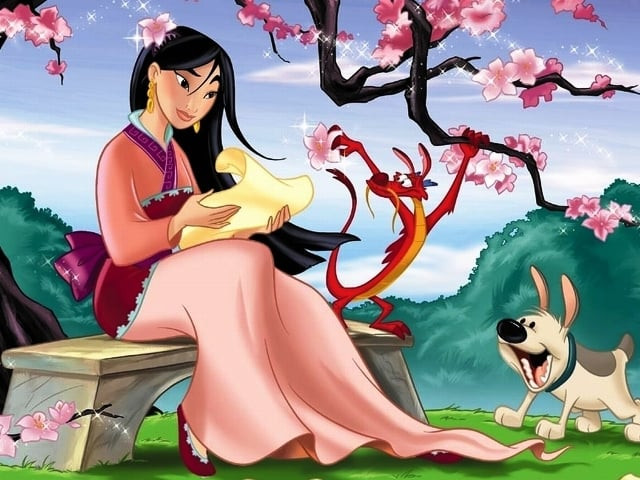Disney films will always hold a special place in the lives of those born in the 90s: we were the ones who would cry and clutch our fathers lest they go jump into a stampede a la Mufasa in The Lion King.
So, recently, some friends and I decided to revisit our favourite Disney film — Mulan.
Mulan is just your average Chinese girl who impersonates a man so she can join the army instead of her father. ‘Two thumbs up!’ promised the back of the DVD cover, and we sat down with popcorn and played the film.
When it finished, there was a moment of silence.
“Wow. Oh my god, wow.”
We had sat down to laugh at the things that made us laugh when we were four. Except now we weren’t four, we were suddenly picking up things that had previously passed us by.
“Their family’s honour rests on Mulan getting married! Why didn’t I see that before?”
“Listen to that lyric again, ‘we all must serve our emperor…The men by bearing arms, a girl by bearing sons.’ A woman’s place is set in society only if she bears sons?!”
“Look at what he just said to Mulan’s father! ‘…teach your daughter to hold her tongue in a man’s presence.’”’
Does all of this sound familiar?
It did to us. There must be something desperately wrong with our society if a few Pakistani girls living in the 21st century could identify with a film set millennia ago in Imperial China. And suddenly it was all pouring out.
“Wear a dupatta, don’t go there it’s not safe (for girls), don’t wear jeans when going out, come home before this time, go to this destination only, take another girl with you…the list is endless.”
“My brother can go to wherever he chooses, spend the night at whichever friend’s place, while my parents act like the ISI when it comes to my friends.”
“And you know what? Boys can go abroad to really good universities, that’s laazmi, but oh no, not daughters, that whole naak kat jaaey gi attitude which means you stay put in Karachi.”
Mulan had to pretend to be a man to do things her way. It’s striking how much this resonates with us, that little prick of ‘if I were a boy I could have done that’ feeling. You listen to these frustrations attentively and feel shocked - until you remind yourself that these are the frustrations of a minority of the 35 per cent of women who are literate in our country, a fact that is even more horrifying.
The chapter on women development in our geography textbook reads like this: ‘Women in Pakistan marry early. They face societal and religious pressures. They should be educated about birth control.’ Next chapter: Mining in Balochistan.
And who were the female leaders we were told to look up to as children? Fatima Jinnah is a neat paragraph assigned in a history textbook; Benazir Bhutto is reduced to a park.
Is it difficult growing up in Pakistan being a girl? Yes. At the macro level, the problems are education, child marriages, and then, at the personal level it is all those little things that we have no choice but to get used to. I wish I could watch this film with the eyes of a child: ‘Mulan broke the rules and saved the day! Yay!’
I wish we could believe the ‘anything is possible’ message of a children’s film. But this particular story was too close to home to enjoy properly and unfortunately, now we’re grown up enough to realise that.
Published in The Express Tribune.
Why your daughter should watch Disney cartoons while she’s still four
As I watched Mulan, I realised that the message coming from the Disney movie was not about powerful women.



COMMENTS
Comments are moderated and generally will be posted if they are on-topic and not abusive.
For more information, please see our Comments FAQ